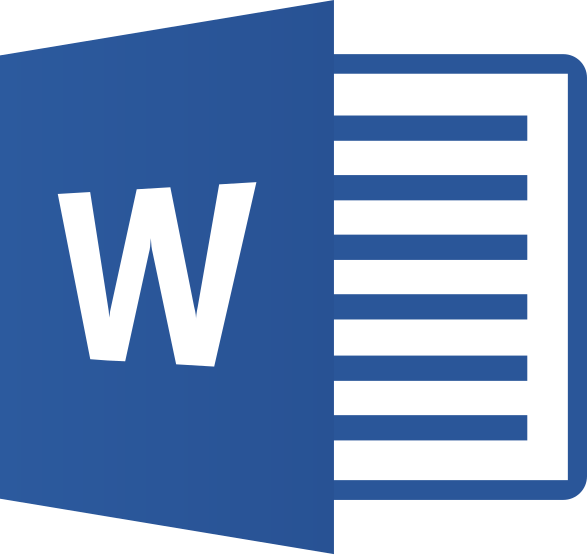The Relevance of KH Abdul Wahab Hasbullah Struggle Values in History Learning Based on the Independent Curriculum Pancasila Student Profile
DOI:
https://doi.org/10.24269/ijpi.v8i2.7836Abstract
The Pancasila student profile is something that is focused in the independent curriculum. In implementation, the Pancasila student profile cannot be done instantly but requires a habit. One effort that can be made is providing material regarding the value of the struggle of historical figures who can be used as role models. One figure who can be used as a role model by the younger generation in strengthening the profile of Pancasila students is KH. Abdul Wahab Hasbullah. This research uses qualitative methods with a literature study which aims to explore the values of KH. Abdul Wahab Hasbullah's struggle. who is relevant in learning history based on the Pancasila student profile of the independent curriculum. As for this research, the results found that in KH. Abdul Wahab Hasbullah has six characteristics that are relevant to the profile of Pancasila students, namely: 1) Faith, devotion to God Almighty and noble character, 2) global diversity, 3) working together, 4) independence, 5) critical and creative reasoning.
References
Abidin, Z., Destari, D., Syafruddin, S., Arifin, S., & Agustiani, M. (2022). Implementation of Islamic Religious Education Learning and Character in the New Normal Era. Al-Hayat: Journal of Islamic Education, 6(1), Article 1. https://doi.org/10.35723/ajie.v6i1.239
Afzal Upal, M., & Cusack, C. M. (2021). Handbook of Islamic Sects and Movements. Handbook of Islamic Sects and Movements. https://doi.org/10.1163/9789004435544
Ali, A. S. (2019). Islam, Pancasila, Dan Kerukunan Berbangsa. Pustaka LP3ES.
Anam, C. (2017). KH. Abdul Wahab Chasbullah Hidup dan Perjuangannya. PT. Duta Aksara Mulia.
Anis, Putro, A. et al. (2010). Model Pembelajaran Sejarah ke Lahan Basah untuk Kesadaran Sejarah. Konferensi Internasional Ilmu Sosial, Globalisasi Dan Teknologi.
Arifudin, O. (2022). Optimalisasi Kegiatan Ekstrakurikuler dalam Membina Karakter Peserta Didik. JIIP - Jurnal Ilmiah Ilmu Pendidikan, 5(3), 829-837. https://doi.org/10.54371/jiip.v5i3.492
Davidaviciene. (2018). Research Methodology: An Introductional. In Moderenzing the Academic Teaching and Research Environment. Spinger, 1-23.
Endang, T. (2006). Kiai and the Pesantren. ANU Press. http://www.jstor.org/stable/j.ctt2jbk2d.9
Fadeli, Soelaiman, M. S. (2017). Antologi NU: Syariah-Istilah-Amaliah-uswah. Khalista.
Febriyanti, R. A., Putri, M. H. S., Husnia, F., Rusminati, S. H., & Rosidah, C. T. (2022). Penerapan Nilai-Nilai Profil Pelajar Pancasila Melalui Pembelajaran Kontekstual Di Sekolah Dasar. Jurnal Kependidikan, 8(1), 190-197. http://www.e-journallppmunsa.ac.id/index.php/kependidikan/article/view/1271
Helmy, M. (2018). Peran Media Santri: Kiprah KH.A.Wahab Hasbullah. Penerbit Keluarga Besar KH.Abdul Wahab Hasbullah.
Irawati, D., Iqbal, A. M., Hasanah, A., & Arifin, B. S. (2022). Profil Pelajar Pancasila Sebagai Upaya Mewujudkan Karakter Bangsa. Edumaspul: Jurnal Pendidikan, 6(1), 1224-1238. https://doi.org/10.33487/edumaspul.v6i1.3622
Kemendikbud. (2020).. Permendikbud Nomor 22 Tahun 2020 Tentang Rencana Strategis Kementerian Pendidikan dan Kebudayaan. Jakarta: Kemendikbud.
Khoirurrijal. (2022). Pengembangan Kurikulum Merdeka. Cv. Literasi Nusantara Abadi.
Lovanti, O. S., & Setiawan, D. (2023). Jurnal Penelitian Pendidikan Profile Implementation Pancasila Students in the Independent Curriculum in Mathematics. 40(2), 62-68.
Miftakhul, A. R. (2021). Pemikiran Kebangsaan KH A Wahab Chasbullah Prespektif Fikih. Jurnal Hukum Dan Ekonomi Islam, vol,20,No.
Najmi, M. izul. (2020a). Islam dan Cinta Tanah Air. Universitas Islam Negeri Syarif Hidayatullah Jakarta.
Najmi, M. izul. (2020b). Pluralitas Dalam Bingkai Nasionalisme: Telaah atas Pemikiran & Perjuangan KH.Abdul Wahab Hasbullah (D. E. Restiani (ed.)). CV Jejak,anggota IKAPI.
Noer, D. (1980). Gerakan Modern Islam di indonesia 1900-1942 (Cetakan Pe). LP3ES.
Primarni, A., Sugito, S., Yahya, M. D., Fauziah, N., & Arifin, S. (2022). TRANSFORMASI FILOSOFI PENDIDIKAN ISLAM PADA PONDOK PESANTREN DI ERA SOCIETY 5.0. Edukasi Islami: Jurnal Pendidikan Islam, 11(01), Article 01.
Rahayuningsih, Y. S., & Muhtar, T. (2022). Pedagogik Digital Sebagai Upaya untuk Meningkatkan Kompetensi Guru Abad 21. Jurnal Basicedu, 6(4), 6960-6966. https://doi.org/10.31004/basicedu.v6i4.3433
Rasyid, H. (1999). KH. Abdul Wahab Chasbullah Perintis, Pendiri, dan Penggerak NU. panitia Penulisan Buku Sejarah Perjuangan K.H Abdul Wahab Chasbullah.
Sadewa, U. (2015). KH. Abdul Wahab Chasbullah Pahlawan Nasional dari Pesantren untuk Indonesia. Lingkar Muda Nusantara.
Sari, M., & Asmendri, A. (2020). Penelitian Kepustakaan (Library Research) dalam Penelitian Pendidikan IPA. Natural Science, 6(1), 41-53. https://doi.org/10.15548/nsc.v6i1.1555
Susanto, A. (2014). Teori Belajar dan Pembelajaran di Sekolah Dasar. Kencana Predan Media Group.
Susilawati, E., & S. (2021). Internalisasi Nilai Pancasila Dalam Pembelajaran Melalui Penerapan Profil Pelajar Pancasila Berbantuan Platform Merdeka Belajar. Jurnal Teknodik, 25(2), 155-168.
Downloads
Published
Issue
Section
License
Copyright (c) 2023 Helminia Salsabila

This work is licensed under a Creative Commons Attribution-ShareAlike 4.0 International License.
Authors who publish with Istawa agree to the following terms:
Authors retain copyright and grant the ISTAWA: Jurnal Pendidikan Islam right of first publication with the work simultaneously licensed under a Creative Commons Attribution-ShareAlike 4.0 International License (CC BY-SA 4.0) that allows others to share (copy and redistribute the material in any medium or format) and adapt (remix, transform, and build upon the material) the work for any purpose, even commercially with an acknowledgement of the work's authorship and initial publication in ISTAWA: Jurnal Pendidikan Islam.
Authors are able to enter into separate, additional contractual arrangements for the non-exclusive distribution of the journal's published version of the work (e.g., post it to an institutional repository or publish it in a book), with an acknowledgement of its initial publication in ISTAWA: Jurnal Pendidikan Islam.
Authors are permitted and encouraged to post their work online (e.g., in institutional repositories or on their website) prior to and during the submission process, as it can lead to productive exchanges, as well as earlier and greater citation of published work (See The Effect of Open Access).
This work is licensed under a Creative Commons Attribution-ShareAlike 4.0 International License.






